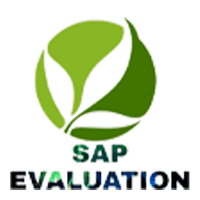Introduction: Understanding the Importance of SAP Evaluation in Substance Abuse Recovery
In substance abuse recovery, SAP evaluation is crucial in guiding treatment and maximizing long-term success. This comprehensive guide explores the critical components of an effective SAP evaluation process and highlights the significance of evaluation in the recovery journey.
Click here to know more about The Key Components of an Effective SAP Evaluation Process:-
1. Gathering Accurate Patient Information and History:
To conduct a thorough SAP evaluation, gathering accurate patient information and history is essential. This includes utilizing a SAP evaluation questionnaire to collect background information, obtaining previous treatment records, and understanding the individual’s unique circumstances.
2. Utilizing Standardized Assessment Tools and Tests for Objective Analysis
Objective analysis is vital in SAP evaluations. Qualified professionals employ standardized assessment tools and tests designed for substance abuse screening. These tools provide objective measures to evaluate the severity of the substance abuse issue and assess its impact on the individual’s overall well-being. Additionally, psychological assessments may be utilized to delve deeper into the underlying factors contributing to the addiction.
3. Conducting In-depth Interviews and Clinical Assessments
In addition to standardized assessments, conducting in-depth interviews and clinical reviews is crucial in SAP evaluations. These interviews allow professionals to understand better the individual’s experiences, motivations, co-occurring disorders, and mental health issues. Assessing these factors helps create a more comprehensive treatment plan tailored to their needs.
Enhancing Treatment Planning and Personalized Care through SAP Evaluation Outcomes Analysis
SAP evaluation outcomes are a foundation for enhancing treatment planning and personalized care. By analyzing the evaluation results, qualified professionals can develop individualized care plans that address each person’s unique challenges and needs in recovery. This tailored approach maximizes the effectiveness and potential for successful outcomes in substance abuse treatment.
The Role of Continuous Monitoring and Follow-Up in Maximizing SAP Evaluation Outcomes
Continuous monitoring and follow-up are vital components of the SAP evaluation process. Following treatment completion, regular assessments and follow-up sessions allow professionals to track an individual’s progress, identify potential relapse triggers, and make necessary adjustments to the treatment plan. Monitoring progress using objective measures helps ensure ongoing support and enhances the chances of sustained recovery success.
Conclusion: Leveraging the Power of SAP Evaluation to Achieve Long-term Substance Abuse Recovery Success
SAP evaluation plays a pivotal role in substance abuse recovery. Professionals can enhance treatment planning and provide personalized care by gathering accurate patient information, utilizing standardized assessments, conducting in-depth interviews, and analyzing evaluation outcomes. Continuous monitoring and follow-up maximize the potential for successful outcomes and long-term recovery success. Leveraging the power of SAP evaluation is key to supporting individuals on their journey toward a substance-free life.


